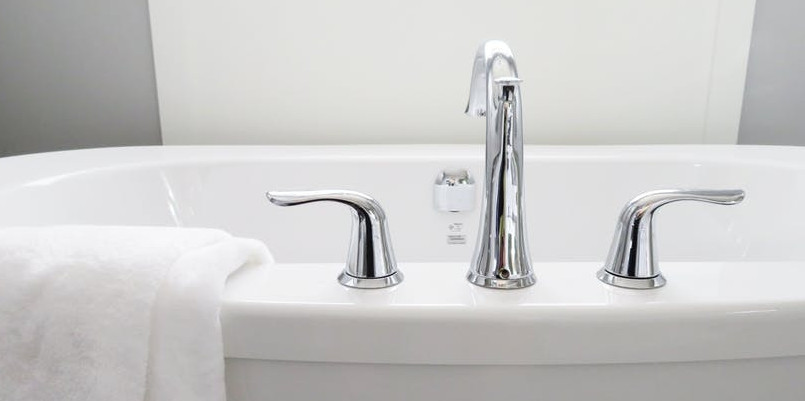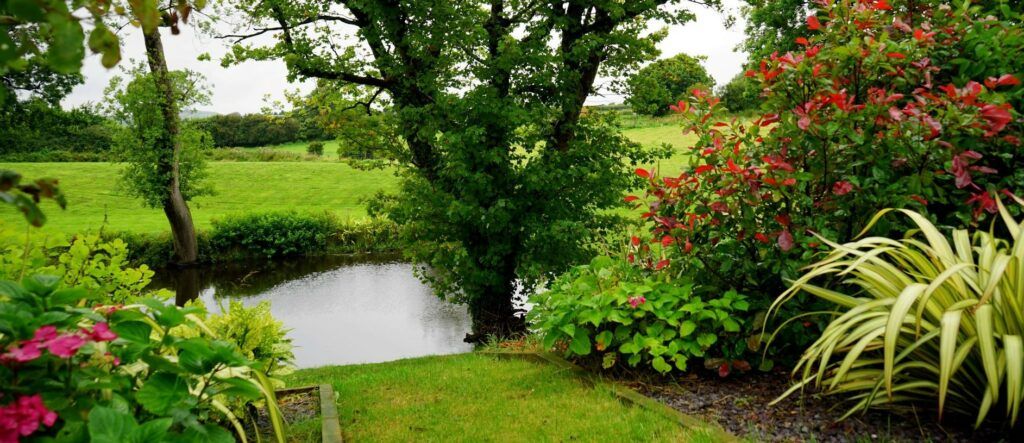What is Epsom salt good for, anyway? You’re probably familiar with Epsom salt’s role as a soothing bath to relieve tired, achy muscles.
However, its benefits extend beyond muscle relief. Were you aware of its other remarkable uses?
It might come as a surprise that this common household item can nourish plants and promote their growth.
What is Epsom Salt?
Epsom salt is completely different from table salt. Known as magnesium
sulfate, it is a mineral compound made of magnesium, sulfur, and oxygen, with a distinctively bitter taste.
You usually dissolved Epsom salt in bath water, where it releases magnesium
and sulphate ions creating a great soak for sore, tired muscles as it eases
stiff joints.
This unique property makes Epsom Salt bath a go-to remedy for soothing sore muscles and a popular way to detoxify the body. An Epsom salt bath offers a popular way to promote relaxation.
Epsom Salt

How to Use Epsom Salt
Just one Epsom salt bath a week will greatly enhance your mood and overall well-being. It is easy to prepare an Epsom Salt Bath.
- Place 2 to 4 cups of Epsom salt under running water as you fill a standard size bathtub. Soak for at least 12 to 15 minutes.
- Use 4 to 6 cups of Epsom salt for a double size garden tub.
- Soak for about 15 minutes in the tub
- Shower after bathing to remove the excess salt from your skin as too much salt can be drying to your skin.
To make a pleasant bath you can combine:
- 3 parts Epsom salt, to soothe tired muscles and reduce inflammation
- 1-part baking soda, to soften waters and alleviate skin irritations
- About 10 drops of your favorite essential oil for fragrance- lavender and chamomile can be good choices
Epsom salt is available in most drugstores, grocery stores or online.
A Foot Bath
Create an Epsom salt foot bath by placing 1 cup of Epsom salt in a basin large enough to put both of your feet into it. Fill the basin with warm water.
Where Did it Get its Name?
Epsom salt was first discovered in the town of Epsom in Surrey, England. This town was known for its mineral spring as early as the 1700s, and as having one of the earliest natural spas in the UK.
There is more to the story of its discovery, from the Royal Society of Chemistry:
Henry Wicker walked across the Common in Epsom England. He stumbled upon a pool of water that his cattle refused to drink due to its bitter taste.
When the water evaporated, an extraordinary salt was left behind. This salt, known as Epsom’s salt (MgSO4), exhibited a laxative effect. Over the subsequent 350 years, these renowned Epsom salts gained recognition as a remedy for constipation.
What is Epsom Salt Good For?
Health benefits of Epsom Salt:
- A great way to soak sore, tired muscles and reduce the stress of everyday life.
- It is affordable and gentle on the skin.
- A soothing Sitz Bath, gentle on hemorrhoids
- A treatment for such things as, psoriasis, and arthritis.
Many people often attribute the range of health benefits to its magnesium content.
Soaking your feet in Epsom salt foot bath, can make you look better, feel better and even smell better, says Dr. Jeffery Bowman, an award-winning doctor of the American Academy of Podiatric Practice Management.
Epsom salt foot baths help ease muscle and joint pain, swollen and inflamed feet, foot and toe fungal infections, and odor and skin problems, he noted.

Epsom salt does not kill infection, rather it draws out infection to the surface, so it does not become larger.
Athletes and Epsom Salt Baths
Soaking in Epsom salt baths after intensive training, such as running, can help prevent inflammation or irritation to your muscles or joints.
For centuries, people have utilized warm Epsom salt soaks to alleviate sore, tired muscles. This practice can alleviate stress, diminish swelling, and decrease inflammation and pain.
There is no question, however, that relaxing in the warm water increases calmness and relaxation.
Here are some other uses for Epsom salt.
- As a scalp treatment for dry flaky skin, you can mix equal parts of Epsom salt with your shampoo. Give your self an invigorating, luxurious scalp massage, and rinse clean. Your head will be thoroughly clean and refreshed.
- To help remove splinters, soak in an Epsom salt bath for 20 minutes or apply a paste of 1 tsp of Epsom salt to 1 cup warm water to make the splinter easier to remove.
- Epsom salt is well-known for drawing out impurities and is a great detoxifier.
- Some people even think that soaking in an Epson salt bath will help you recover from the flu more quickly.
Some Cautions Before Using Epsom Salt
- If ingested, Magnesium can have a laxative effect. It may cause an upset stomach, diarrhea or bloating.
- There are many safer preparations available for occasional constipation, and ingestion should only occur under a physician’s guidance.
- Consult with your doctor if you have any persistent or serious health condition, including diabetes and heart conditions.
- Epsom Salt Council recommends only Epsom salt with the USP designation.
Epsom Salt Bulk Bag

Epsom Salt Uses in the Garden
For generations, the use of Epsom salt in the garden has been the gardener’s best-kept secret.
Epsom salt:
- Produces lush flowers and fruit
- Creates chlorophyll to produce the rich green color of plants
- Makes the plants grow fuller and bushier
Hydrated magnesium sulphate (magnesium & sulfur) are important to healthy plant growth. You can use it safely on most garden plants.
Magnesium sulfate is readily absorbed through its leaves by spraying. Most plants can be misted with a solution of 2 Tbsp (30 ml) per gallon of water once a month, or 1 Tbsp (15 ml) per gallon of water every other week.
Apply in the spring when the leaves appear, and then again after they have flowered.
Tomatoes, Peppers and Roses
Plants like tomatoes, peppers and roses require a lot of magnesium. When transplanting in the ground, 1Tbsp of Epson salt around each plant will prevent root shock and will also deter slugs and snails.
A mixture of 1 cup of Epson salt and 5 gallons of water, sprayed onto the foliage, is also good for general pest control.
For a Lush Lawn
Epson, salt will help you grow a lush green lawn. First test your soil for its magnesium content. If it is deficient, Epson Salt Council recommends applying 3 lb of Epsom salt for every 1250 square feet of lawn. Use a spreader and then water your lawn.
In Conclusion
Did you know what is Epsom salt good for? It is well-known as a relaxing soak to relieve tired, achy muscles, and is way to fertilize your garden and lawn. There are so many ways to use it. Who knew that your plants would thank you for it as well!
Please Leave a Comment
Have you ever used Epsom salt for a warm soak for sore muscles? Have you used it as a fertilizer? What other experience do you have with Epsom salt?
Disclaimer: If you have any concerns or questions about your health, you should always consult with a physician or other healthcare professional. No content on this site should be substituted for direct medical advice from your doctor or other qualified healthcare practitioner. The information contained here is for informational purposes only. It is from my research and personal experience.
Related Posts
Top 10 Winter Skin Care Tips to Maintain and Repair Dry Skin Naturally
9 Tips to Use Essential Oils at Home and Round About
7 Raw Manuka Honey Health Benefits



finding a good article does not come by easily so i must commend your effort in creating such a beautiful website and bringing up an article to help others with good information like this. i really never knew anything about epsom salt but i am glad you made a detailed explanation. thank you very
Thanks, for giving us an informative article. By reading your post I learned about Epsom Salt.it’s completely different from table salt.I learned how to use it. It is a great way to soak sore, tired muscles and reduce the stress of everyday life. It is very beneficial for us to live a healthy life.I learned how to use Epsom Salt in my garden. Everyone should know about Epsom Salt.
This post is very helpful for every person I will share this post on my social media.
I knew a few uses of Epsom salt. Mainly the Epsom salt baths and soaking in it. I am surprised about the gardening benefits. It’s awesome to know it helps tomatoes and peppers, even roses. This is great information I didn’t know before. Thank you for sharing all the uses of Epsom salts.
Hi Paula, Thanks for stopping by with a comment! It is fun writing this blog. In researching for articles, I broaden my knowledge. I too, learned the benefits of Epsom salt as a fertilizer. It is good for drawing out slivers and good for the scalp. After a long day, I find a foot soak in Epsom salt water with some essential oils added is great to relax for a great night’s sleep.